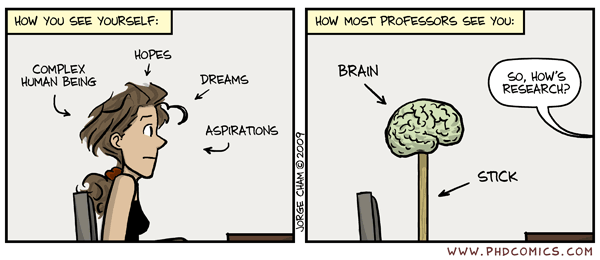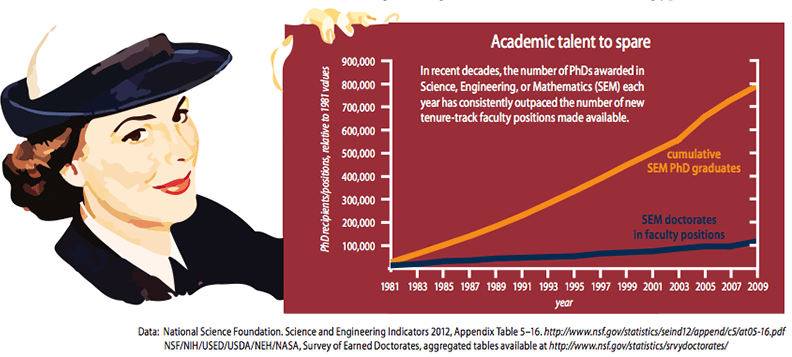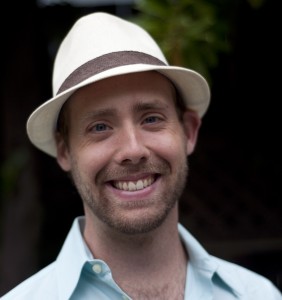What we could learn from industry
You have probably heard a lot of articles, blog posts, tweets, and facebook rants lately about the abysmal state of the job market for aspiring academics. You’ve probably heard stories (the Berkeley Science Review even ran one last semester) about the shifting reality for graduate students, and about the needed focus on non-academic careers for graduate education.
I’m not here to debate any of this, but there’s plenty of material out there if you’re curious. However, there’s a really important point in this discussion that almost never gets voiced: learning about the non-academic world is not only about getting a non-academic job, it also makes us better scientists.
Now, I can see you all rushing to your keyboards to rise up in protest, so let me make this clear: I’m not saying that academia should be a “business” in some sense, and I understand the importance of keeping conflicts of interest out of science (though last time I checked the simple desire to publish can be, itself, a conflict of interest). What I’m saying is that we have a lot to learn from the non-academic world, about how to interact with our peers, how to work together as teams, how to manage projects, and how to communicate with others.
In my most cynical moments, I view “business” as a relatively simple game: how can the right collection of people make as much money as humanly possible? This may sound like a critique, but it’s not. It is just a goal (in reality probably only one of many). And guess what businesses are really good at doing? Making money, and accomplishing that goal. They’re clearly doing something right, so what is it that we can learn from them?
Let’s take a moment and think about what being part of a successful business generally entails: you need to get a group of people together with a wide range of expertise and experience. You must define a common goal, and make a plan to accomplish that goal. Moreover, you need to split up chunks of that plan and assign each of them to people in your group, making sure to pair the right job with the right person. In so doing, each individual contributes their own skills to the project, and they learn a lot in doing so. At the end of the day, the team achieves their goal, and everyone shares in the riches gained.
To me, this sounds a lot like a science lab. Labs tend to be focused on a single “theme” of scientific question (e.g., “we study visual processing in zebrafish”). They’ve got a bunch of graduate students and post-docs, all of whom bring something unique to the table, and each of which is involved in asking a different question related to the “big picture”. Finally, you’ve got the PI at the top, pulling the strings and making sure the machine runs smoothly (ideally anyway).
The only problem is that even though the task that academics and businesses must accomplish is quite similar, they take very different approaches to solving it. The business world has a tendency to emphasize interpersonal relationships and “teamwork” as attributes that it admires. It gives credit to those who can work with groups, and who learn to share the load and the glory.

www.phdcomics.com
Academia, on the other hand, runs on a sort of “wheel and spoke” model in which each graduate student is expected to be the sole lead in “their project”. Post-docs may have a few people working underneath them, but it’s rare to find a lab that truly distributes the workload. And why should they? Academic publishing incentives encourage the outdated picture of a lone genius toiling away in the lab until the wee hours of the morning. How many of you remember the last names of all those middle authors?
Another lesson we could all learn from the business world is communication. What’s the single most important thing that you can do after discovering something amazing about the world? Tell people about it. Unfortunately, many academics seem to have an aversion to speaking in “layperson’s” terms, and do little more than pay it lip-service in trying to tailor their writing and speaking to be understandable by the average person.
In the non-academic world, communication skills are one of the most important abilities that anyone can have. You must be able to make other people understand what you’re talking about, whether this means presenting to others on your team, potential partners, or even your boss(es). Businesses understand that image and presentation are incredibly powerful tools in persuasion, and academia would do well to take a lesson from this.
To this point, many researchers say “but our job isn’t to speak to the average person, it’s to speak with other scientists who take an inherently objective approach to everything!” Perhaps they’re right (that’s a point we can debate another time), but at the risk of insulting our fellow academics, there’s a good chance that those fancy experts in the audience are just as swayed by a well-crafted presentation, and that they probably have no idea what you’re talking about.
In reality, scientists are humans just like everybody else. They don’t have super-human intelligence or the attention spans of an owl, and just like everybody else they respond to material that is clearly presented, well prepared, and above all interesting. If you’ve ever said to yourself “well, this slide is full of jargon, but the audience is pretty well-versed in this field so it’s OK”, then you should stop right there and read journal abstracts until your eyes bleed. Then, rewrite your presentation with the goal of not inflicting the same kind of pain on your audience.
So, do I think academia should be run like a business? No. We study far more interesting problems that (for better or worse) most companies are never going to be interested in. That said, we have a duty to do the best possible work with the resources that we have. To me, that means looking towards other industries, learning about what they do well, and incorporating this wisdom into our own scientific culture. I dream of a world in which scientists are viewed like entrepreneurs: masters of many trades, steeped in charisma, making connections where none existed before and forging a path into the unknown.
Author’s Note: Some people have excellently pointed out that my use of “average people” comes across as condescending. I want to reiterate that by “average”, I do not mean inferior or less intelligent in any way at all. By “average”, I simply mean people with less specialized, domain knowledge than someone with scientific training in a particular field might have.
Chris studies cognitive and computational neuroscience, attempting to link higher-level theories of the mind with information processing in the brain. He’s also an avid science communicator – check out his posts on the Berkeley Science Review and follow him on Twitter at @choldgraf


Why are all of the non-scientists eferredto as the “average” people. This attitude, in itself, points out a problem.